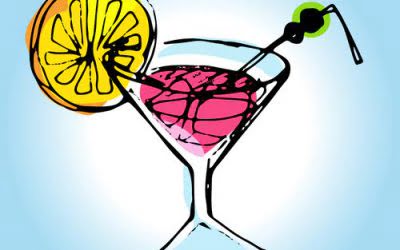Content
If you are close to someone who experiences alcohol-induced anger, it’s important to get help and support. BetterHelp offers affordable mental health care via phone, video, or live-chat. Instead of being a natural emotion, someone with an alcohol use disorder will express anger to avoid dealing with unpleasant or adverse circumstances, including the addiction.
As a therapist on the Monument platform, I often work with my patients to identify the root cause of their anger, and establish healthier ways to process intense emotions in sobriety. These are clinically studied therapies that resulted in statistically significant results. Clients will engage in the therapy best suited to their own specific needs and underlying factors.
Alcohol Affects Empathy
Or, you may have someone in your life or family who has a problem with a short fuse or a hot temper. When anger gets out of control, this emotion can become very destructive to yourself and others. In a 2017 report, researchers shared their findings of the relationship between alcohol and dating violence. The study included 67 undergraduate men who were currently dating someone.
Alcohol and other psychoactive substances are known for reducing our ability to recognize emotions and empathize with others. So it should be no surprise that alcohol makes it harder for us to recognize when we are threatening or being hostile to someone else. Likewise, we may also misinterpret when someone is being normal and think they are acting hostile or antagonizing. This isn’t such a bad thing if your lowered inhibition means you might flirt more with your partner or be more sociable with your friends. However, if lowered inhibition for you means that fury is unleashed, you could be in for some trouble. Witkiewitz K, Villarroel NA. Dynamic association between negative affect and alcohol lapses following alcohol treatment.
Download E-Book Healing Core Issues
As a licensed clinician, Cheryl stands ready to diagnose and treat a wide spectrum of mental, behavioral, and personality disorders that sometimes present alongside a substance use disorder. Whether she’s leading group therapy or providing an individual therapy session, Cheryl’s expansive knowledge and genuine compassion paired with her deep drive to help people are always on display at The Freedom Center. Predicting outcomes of individuals with alcohol dependence following a treatment experience has long been of interest in the field (e.g., Edwards et al., 1988). Edwards et al. indicate that several pretreatment characteristics (e.g., personality, employment characteristics) predicted posttreatment outcomes. Since this research was conducted, the study of predictors of outcome has progressed substantially (c.f., Adamson, Sellman & Frampton, 2009 for a review). Meditation can help clients to relax physical tension, become more self-aware, and work toward creating a healthy mind-body balance.
People who have a high sensation-seeking trait in the brain could be more susceptible to drug addition, according to a new … “Alcohol didn’t have much effect on the aggressiveness of people who were future-focused.” “The participants were led to believe they were dealing with a real jerk who got more and more nasty as the experiment continued,” Bushman said. “We tried to mimic what happens in real life, in that the aggression escalated as time went on.” The aggression measure used in this study was developed in 1967 to test aggressiveness through the use of harmless but somewhat painful electric shocks. The researchers measured the participants’ threshold to the electric shock pain before the experiment began to ensure that no one received a shock that exceeded what they could take.
Getting Help at Lighthouse Recovery Institute
Both inpatient and outpatient programs for alcoholism addiction provide a supportive and safe environment for overcoming the grip of alcohol on your life. But these programs do not address only addiction – they also often offer counseling services to talk through your issues with anger. More than anything, a rehab program can help you create ways to deal with both alcoholism and anger. Even if you’re not ready to attend a more formal alcoholism rehab program alcoholism and anger or one-on-one counseling, it is a good idea to start attending an AA community support group. These groups are designed to help those struggling with alcohol addiction overcome the consequences of their condition – including being able to control their angry responses. AA meetings are typically open to anyone who wants to attend, and offer a nonjudgmental and supportive environment to talk through the effects alcoholism has had on your personal life.

Medical Reviewers confirm the content is thorough and accurate, reflecting the latest evidence-based research. Content is reviewed before publication and upon substantial updates. We help thousands of people change their lives with our treatment programs.
